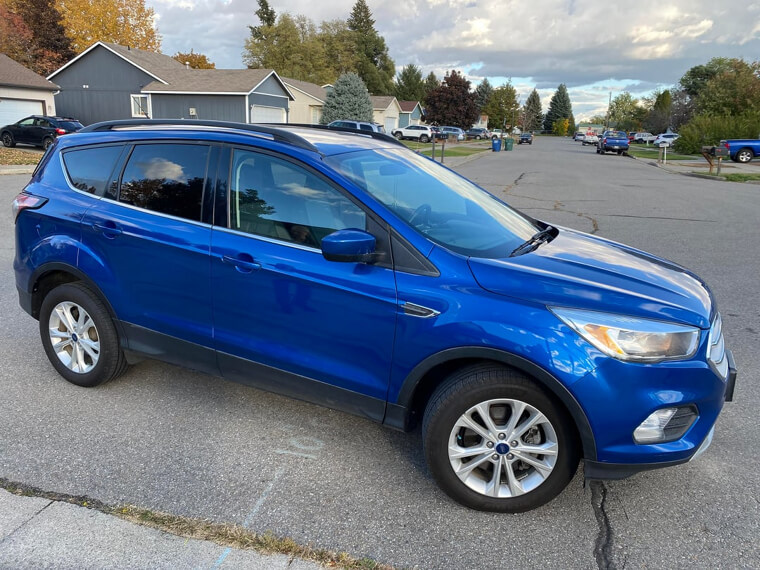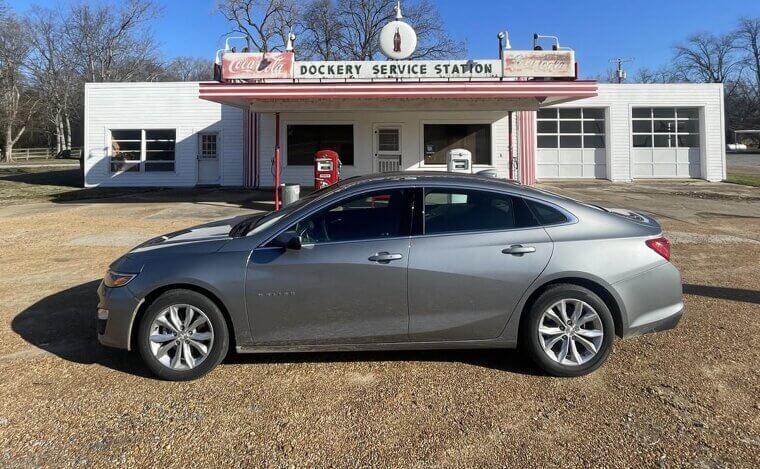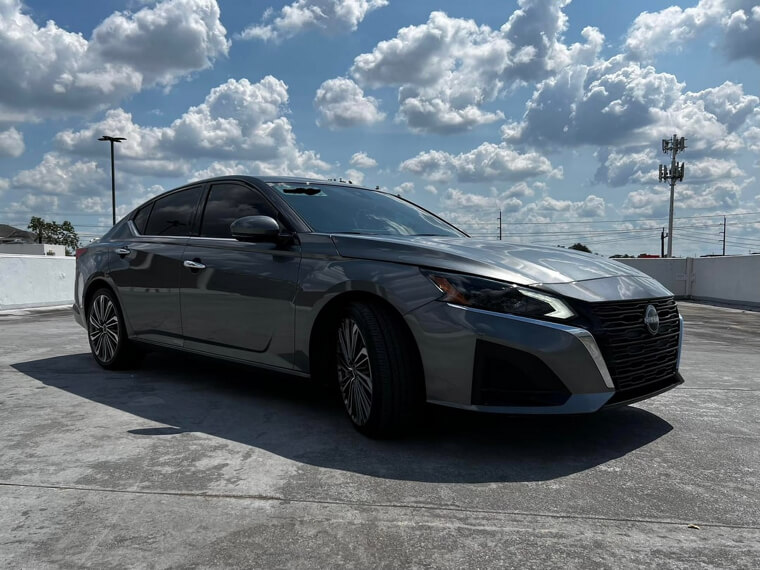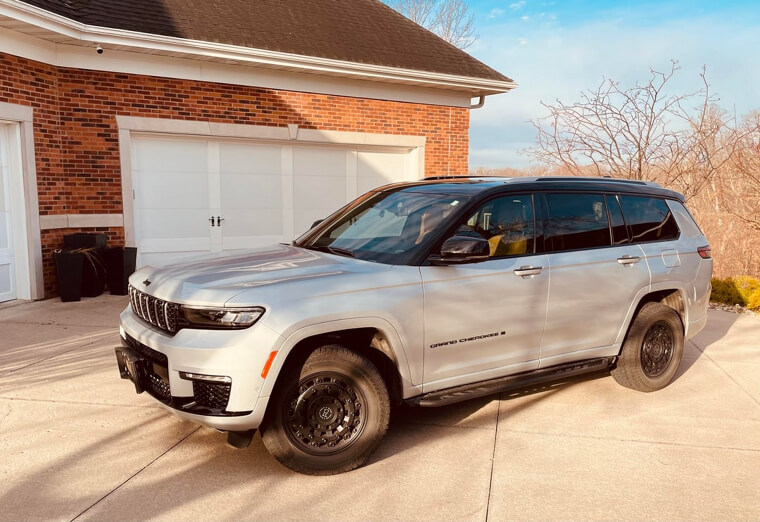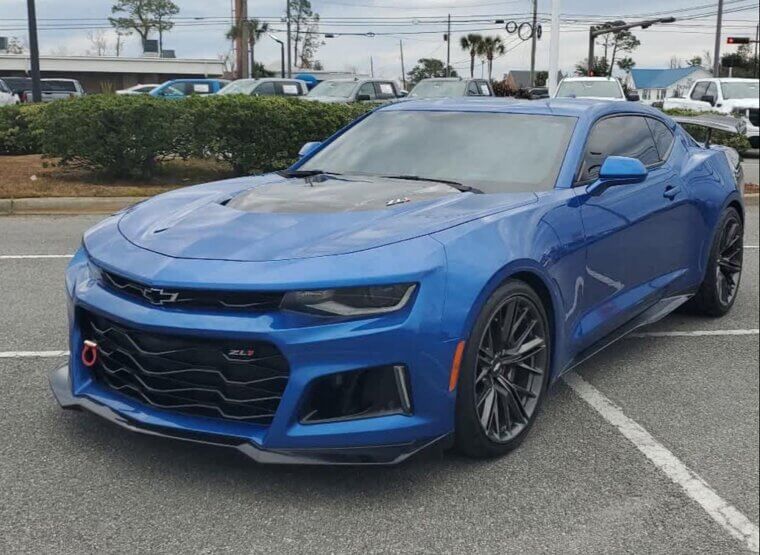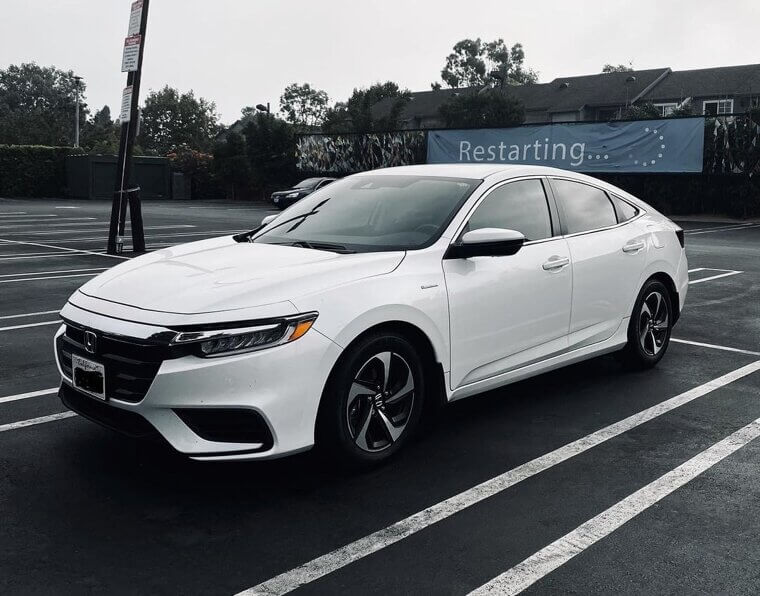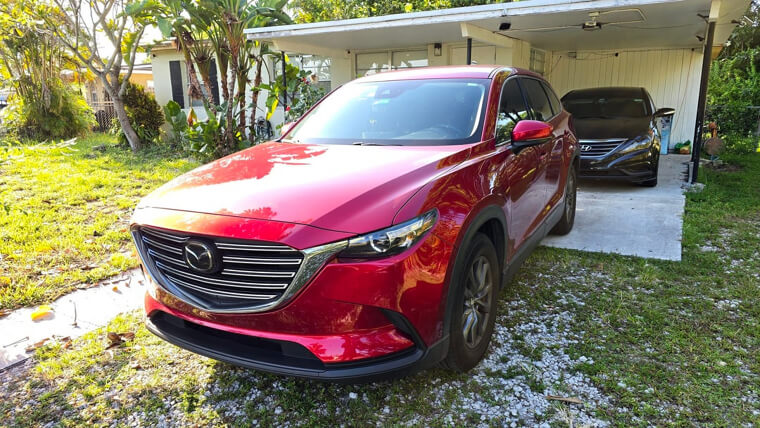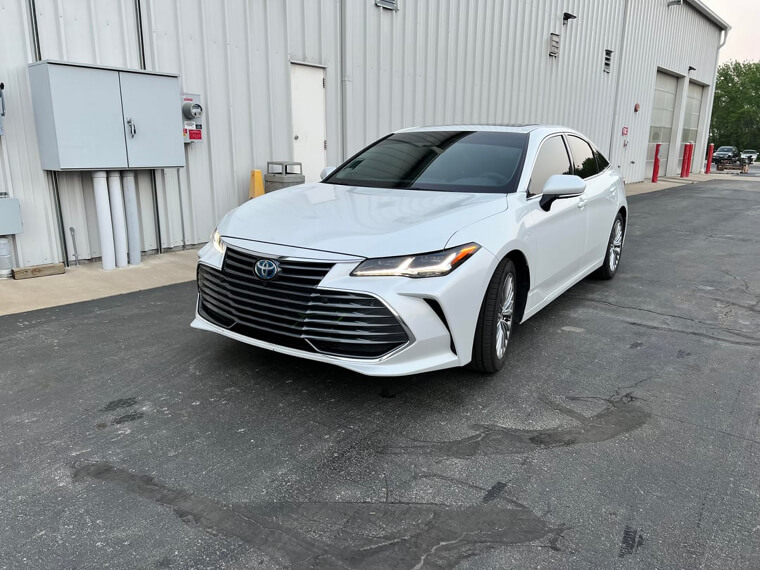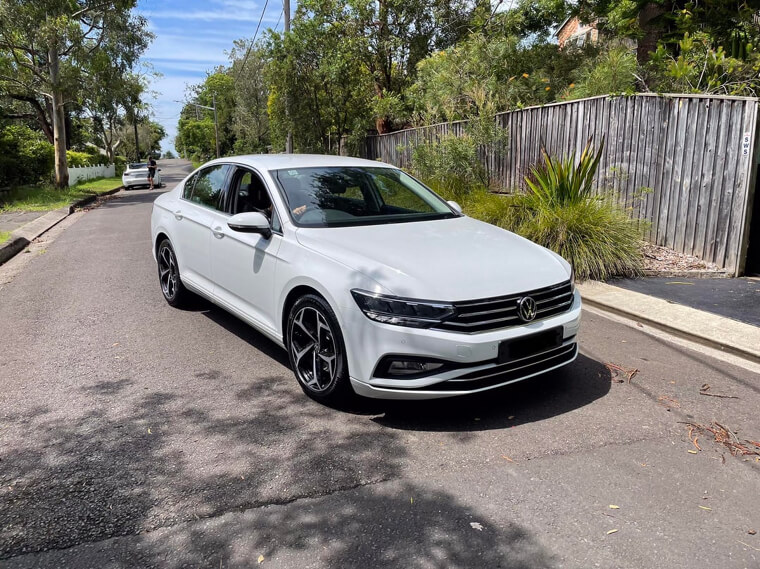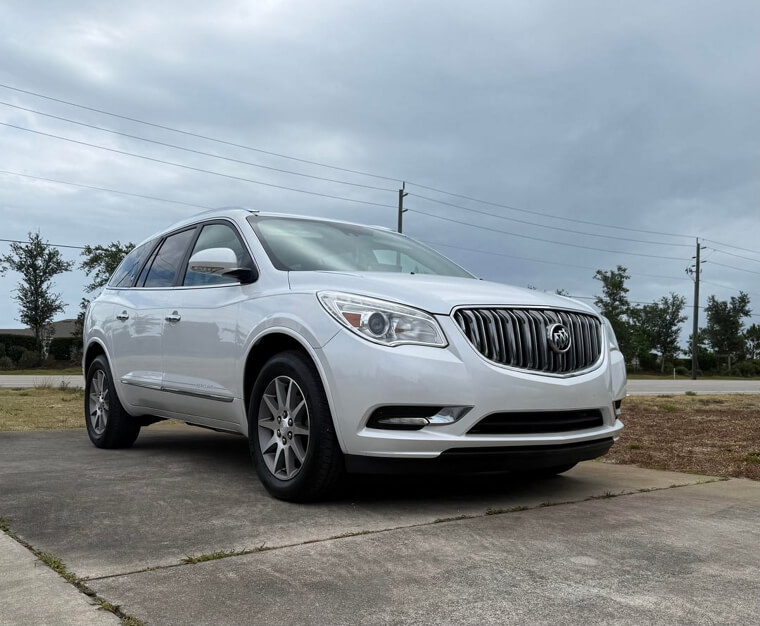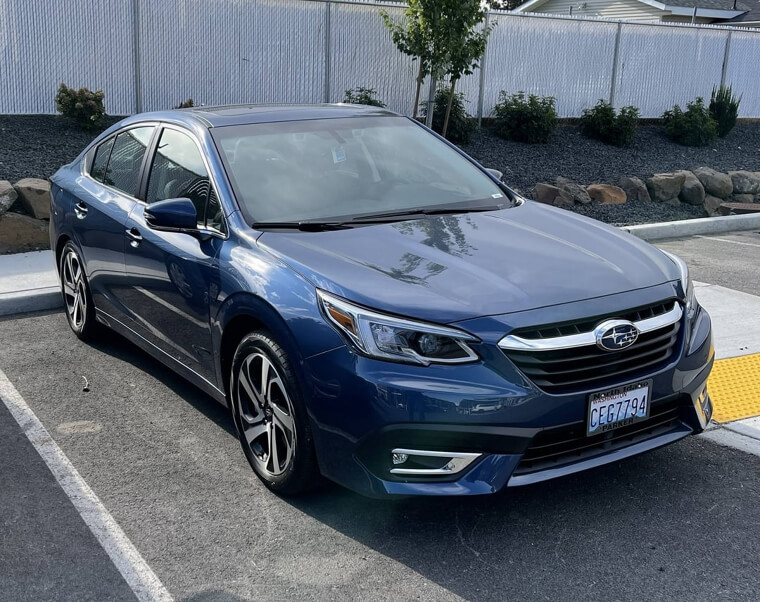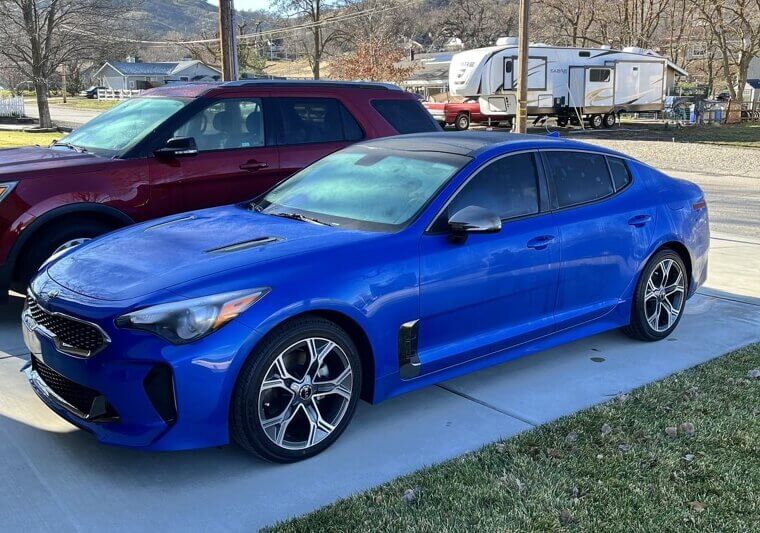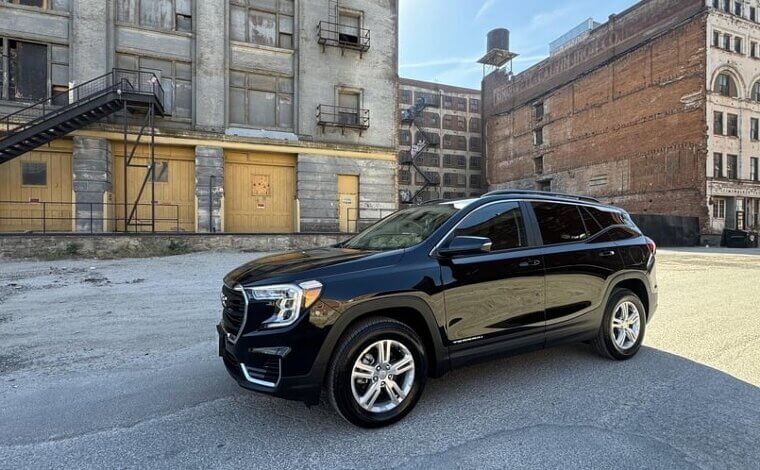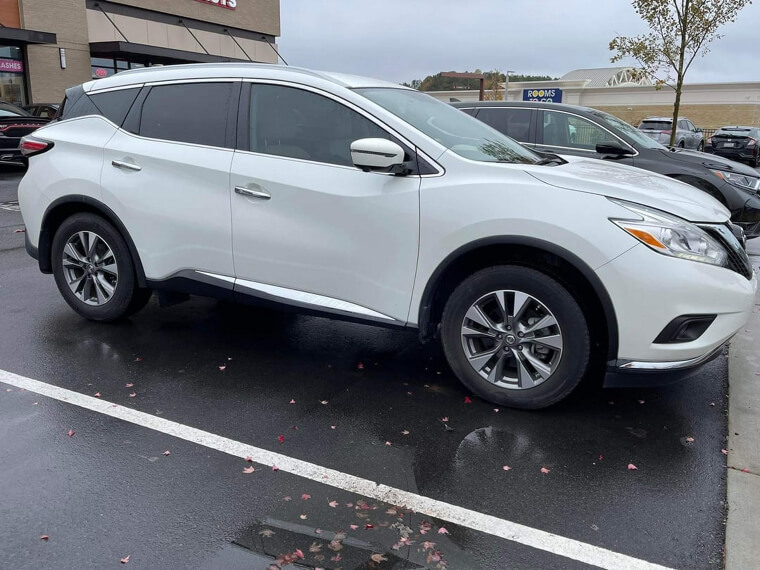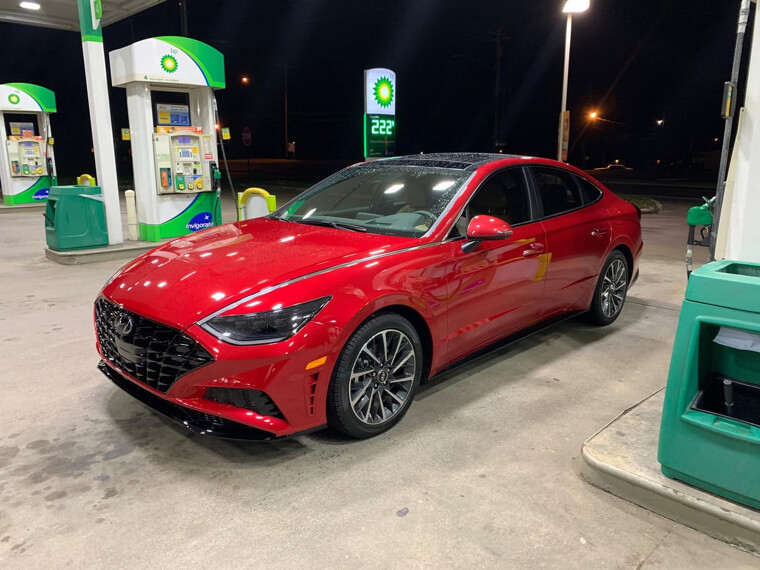Ford Escape
The Ford Escape was once a top-selling compact SUV, but its 2025 numbers show a clear downward slide. Buyers have grown frustrated with its small cargo space, aging infotainment system, and less-than-impressive fuel economy compared to rivals. As Ford pours its energy into electric models and trucks, the Escape has received minimal attention, leaving it behind in both design and performance. Competitors like the Toyota RAV4 Hybrid and Honda CR-V now offer more power, better mileage, and stronger reliability scores. The Escape’s depreciation rate has also climbed, making it less appealing for budget-conscious buyers. Even fleet operators are beginning to replace Escapes with newer options that cost less to maintain. What was once a cornerstone of Ford’s lineup now feels outdated in a market shifting toward electrified, tech-heavy vehicles. Without a major redesign, the Escape risks disappearing entirely within a few model years.
Chevrolet Malibu
The Chevrolet Malibu has been a familiar name in American driveways for decades, but in 2025 its popularity has fallen sharply. As sedan sales continue to decline, many buyers are trading traditional cars for crossovers and compact SUVs. The Malibu’s dated design and lack of cutting-edge technology make it feel behind the curve in a market obsessed with innovation. While the ride quality remains comfortable, it cannot compete with the advanced driver-assistance systems and hybrid options found in newer rivals. Production costs and limited updates have left it struggling to stay relevant. Dealers report slower movement on lots, with incentives failing to spark demand. Younger buyers are simply not interested in midsize sedans anymore, and longtime owners are shifting to more versatile models like the Chevrolet Equinox or Toyota RAV4. The Malibu’s drop in sales may signal the end of an era for one of America’s once-iconic family cars.
Nissan Altima
The Nissan Altima has long been known for reliability and comfort, but 2025 has not been kind to this once-popular sedan. Sales have dropped sharply as consumers abandon sedans in favor of SUVs and hybrids. Even loyal Nissan owners admit the Altima’s design and driving dynamics feel outdated. While it still offers good fuel economy, its continuously variable transmission has drawn criticism for being noisy and unrefined. Competing models like the Honda Accord and Hyundai Sonata offer smoother rides and more advanced technology. The Altima’s resale value has fallen as dealers struggle to move inventory. In a market dominated by electrification and crossover appeal, the Altima’s conservative styling and lack of innovation make it easy to overlook. It remains dependable transportation, but it no longer excites buyers, and that loss of enthusiasm shows in its declining numbers.
Jeep Cherokee
The Jeep Cherokee once dominated the midsize SUV segment, but in 2025 its popularity has tumbled. Buyers are increasingly turning away due to concerns over reliability, poor fuel efficiency, and high repair costs. Despite Jeep’s strong reputation for off-road performance, most owners use their SUVs for city driving, where the Cherokee’s heavy frame and rough ride feel out of place. The interior design, while improved in recent years, still lags behind competitors in both comfort and technology. Newer SUVs from Hyundai, Toyota, and Subaru offer better value and lower maintenance costs. As the SUV market becomes saturated, buyers are prioritizing efficiency and refinement over rugged styling. Dealers report rising inventory levels as fewer shoppers consider the Cherokee. Once a household name, it now struggles to stay relevant in a segment that has outgrown its strengths.
Chevrolet Camaro
The Chevrolet Camaro’s decline in 2025 reflects changing tastes in performance cars. While once a symbol of American muscle, it is losing ground as buyers move toward electric and hybrid sports cars that deliver power with better efficiency. Younger consumers are less interested in gas-hungry coupes, and older enthusiasts are moving on to more comfortable grand tourers. The Camaro’s limited rear visibility, cramped cabin, and harsh ride have also hurt its reputation as a daily driver. Sales have dropped enough that Chevrolet has hinted at ending production soon. Meanwhile, the Ford Mustang Mach-E and Dodge Charger EV are drawing buyers who want speed without fuel costs. Even loyal fans admit the Camaro feels stuck in the past. Unless Chevrolet reinvents it as an electric performance car, the once-proud icon may vanish from showrooms entirely.
Honda Insight
The Honda Insight, once seen as a smart hybrid alternative, has struggled to maintain relevance in 2025. With the market now filled with more advanced and affordable hybrid options, buyers are choosing competitors that offer better performance and longer electric range. The Insight’s plain styling and higher price tag have made it less appealing compared to hybrid versions of the Toyota Corolla or Hyundai Elantra. Honda’s decision to focus more on its new Civic Hybrid and electric models has also drawn attention away from the Insight. As a result, dealers report slower sales and limited restocks. Once a pioneer of hybrid technology, the Insight now feels overshadowed by the very competition it inspired. For many buyers, it simply no longer stands out as the efficient and futuristic choice it once was.
Mazda CX-9
The Mazda CX-9’s popularity has dropped rapidly as buyers shift toward the newer CX-90 and other three-row competitors. The CX-9’s smaller engine, dated infotainment system, and limited towing power make it less competitive in a market that now values both space and performance. Buyers have praised Mazda’s styling and handling for years, but the CX-9’s lack of hybrid or plug-in options has hurt its appeal in 2025. Families are choosing larger, more efficient SUVs from Toyota, Hyundai, and Kia instead. Mazda’s own CX-90 offers better technology, improved fuel economy, and a modernized interior, effectively making the CX-9 obsolete. Dealerships are clearing out remaining inventory with heavy discounts, a sure sign of waning interest. For a model once considered one of the most refined SUVs in its class, its fall from favor has been swift.
Toyota Avalon
The Toyota Avalon was long seen as a premium sedan for drivers who wanted comfort without luxury-brand pricing, but 2025 marks a clear end to that era. The rise of hybrid crossovers and Toyota’s own Crown model has overshadowed the Avalon entirely. Its large footprint and traditional design no longer fit what buyers want. Younger consumers see it as outdated, while older ones are drawn to vehicles with better tech integration and fuel economy. Toyota’s decision to end production has further diminished its market presence. Dealers are struggling to move remaining inventory, even with aggressive discounts. The Avalon’s once-loyal following is shrinking as customers switch to SUVs or hybrid sedans. What was once Toyota’s flagship for refined driving has become another casualty of shifting automotive trends.
Volkswagen Passat
The Volkswagen Passat has lost traction with American buyers as midsize sedans fade in popularity. Once valued for its European feel and roomy cabin, it now faces competition from SUVs offering better value and versatility. Volkswagen’s limited marketing support and slow transition to electrified models have also hurt sales. The Passat’s reliability reputation has suffered over the years, discouraging repeat customers. As the company focuses on the ID. series of electric cars, the Passat has quietly faded from relevance in the United States. Dealers are offering deep discounts to move remaining stock, signaling a likely phase-out. Once a favorite among practical drivers who wanted a touch of luxury, the Passat’s decline shows just how dramatically the market has shifted away from traditional sedans.
Buick Enclave
The Buick Enclave’s decline highlights the growing competition in the large SUV market. Once seen as a comfortable and affordable alternative to luxury brands, it now struggles to stand out. Buyers increasingly prefer newer models from Hyundai, Kia, and Toyota that offer better technology, warranties, and design for the same price. The Enclave’s aging platform and modest fuel economy have made it less appealing in 2025. Buick’s slow shift toward electrification has not helped either. Dealers report rising inventories as interest continues to drop. For families looking for value and style, the Enclave simply cannot match what competitors deliver. Without major updates, it risks being left behind as buyers seek vehicles that feel more modern and efficient.
Subaru Legacy
The Subaru Legacy is known for its all-wheel drive and solid reliability, but it has fallen out of favor in 2025. The surge in popularity of Subaru’s SUVs, especially the Outback and Forester, has made the Legacy redundant. Buyers who once preferred sedans are choosing vehicles with higher seating positions and more cargo space. Despite recent updates, the Legacy’s design feels too conservative to attract new customers. Fuel economy also lags behind hybrid competitors. Dealers are reporting slower sales and fewer trade-ins from loyal Subaru owners. While it remains a capable and safe vehicle, it simply cannot compete with the convenience and appeal of modern crossovers. Its drop in popularity reflects the broader shift away from traditional sedans.
Kia Stinger
The Kia Stinger entered the market as a bold, performance-oriented sports sedan, but in 2025 it is fading fast. The rise of electric performance vehicles and SUVs has drawn attention away from gasoline-powered sedans. Despite positive reviews, the Stinger’s niche audience has not grown enough to sustain strong sales. Kia’s newer electric models now capture the brand’s innovation spotlight. High insurance costs and limited practicality have also hurt its appeal. As production winds down, buyers looking for performance are choosing electric alternatives like the EV6 GT. For a car once praised for challenging European rivals, the Stinger’s sharp decline shows how quickly market preferences can change.
GMC Terrain
The GMC Terrain once served as a strong entry in the compact SUV category, but in 2025 it is struggling to find buyers. Its high price, average interior materials, and weak engine options have turned many shoppers away. Competitors like the Mazda CX-5 and Hyundai Tucson now offer better performance and more advanced safety technology for less money. The Terrain’s reliability scores have also declined, further discouraging repeat customers. While its styling remains attractive, it cannot compensate for lackluster value. Dealers are offering steep discounts to move unsold inventory. Without major upgrades, the Terrain risks fading completely from GMC’s lineup as buyers continue to seek more efficient and better-equipped alternatives.
Nissan Murano
The Nissan Murano’s futuristic design once stood out, but after years without major updates, it has lost its shine. Sales have dropped steadily in 2025 as newer midsize SUVs offer more power, better tech, and improved fuel economy. The Murano’s interior remains comfortable, but the infotainment system feels dated and unresponsive. Its V6 engine is reliable but less efficient than modern turbocharged or hybrid alternatives. With competitors offering more features for less money, buyers are moving on. Even long-time Nissan fans admit the Murano feels neglected in comparison to newer models. Unless Nissan delivers a major redesign, its decline will likely continue as the market shifts toward electrified SUVs.
Hyundai Sonata
The Hyundai Sonata’s sharp styling and long warranty once made it a standout in the midsize sedan category, but 2025 tells a different story. The shift toward SUVs and hybrids has left the Sonata behind. While still a well-built car, it faces stiff competition from Toyota, Honda, and Kia models that offer hybrid or plug-in options. Many buyers now see sedans as impractical compared to crossovers that provide similar pricing with more space. Hyundai’s focus on electric vehicles has also drawn attention away from the Sonata, leading to lower marketing and fewer updates. As a result, sales have dropped significantly. It remains a smart choice for value seekers, but mainstream interest continues to fade in favor of more versatile and tech-forward options.

